Why regular massage does more than relax your muscles — and how it can quietly change your life.
She came in after a stressful month.
“I don’t even know where to start,” she said, lying on the table.
“I just know I’m exhausted. Not just tired — everything feels tight.”
No diagnosis. No dramatic injury. Just the quiet wear-and-tear of everyday life — the kind that builds up in the shoulders, hides in the neck, locks into the hips, and eventually clouds the mind.
We began the session. Slow, attentive, intentional.
And by the time it ended, she sat up and said something I hear often:
“I didn’t realise how disconnected I felt… until now.”
That is the power of touch.
⸻
It’s not just physical. It’s physiological.
Massage isn’t just about softening tight muscles — it’s about regulating the nervous system, restoring circulation, and giving your body the signal that it’s finally safe to let go.
When I work with someone, I’m engaging their:
•Vagus nerve (linked to calm, digestion, and heart rate)
•Lymphatic system (for detox and immunity)
•Fascia (the connective tissue that holds us together)
•Mind-body feedback loop (where thoughts live in the body)
It’s not just “feeling good.” It’s functional repair — especially for people who live in chronic stress mode and don’t even know it anymore.
⸻
Touch tells the body: You’re not in danger anymore.
The world constantly asks us to do more, be more, push harder.
But your body isn’t designed to live in performance mode 24/7.
Massage creates the opposite space — one where nothing is demanded of you.
And that’s where healing begins.
I’ve worked with:
•Desk workers who forgot what it’s like not to have shoulder pain
•Women carrying emotional stress in their jaw and chest
•Men who didn’t realise how locked down their posture had become
•Exhausted parents who finally exhaled for the first time in months
All of them left lighter — not just in their body, but in their nervous system.
⸻
Regular massage changes your baseline
Most people come for massage when they feel “broken.” But that’s like only drinking water when you’re dehydrated.
Massage works best when it becomes part of your rhythm:
•Once a month to maintain calm and circulation
•After travel or heavy training
•As a reset during emotionally difficult times
•To prevent tension from becoming pain
Your body remembers everything.
Touch helps it release what it’s been carrying.
⸻
What kind of massage works best?
The truth? It depends on you.
That’s why I offer:
•Deep tissue massage – for structural tension and chronic pain
•Head and neck work – for anxiety, insomnia, and mental overload
•Facial lifting massage – to sculpt, drain, and soften
•Cupping therapy – to break up stagnation and boost circulation
•Personalised sessions – combining everything you need in one treatment
Because your body isn’t one-dimensional — and your treatment shouldn’t be either.
⸻
Final thoughts: Your body is trying to talk to you. Massage helps you listen.
That tension in your neck? The clenching in your jaw? The tightness in your hips?
It’s not random.
It’s your body asking for attention.
And in a world that teaches us to ignore pain until it shouts — massage is a quiet way of saying:
“I hear you. I’ve got you. You can let go now.”
Whether you’re here to restore balance, rebuild energy, or just remember what it feels like to be in your body — I’m here to help.
📍 Golden Cross House, Room 203, 2nd Floor, London WC2N 4JF
📞 +44 7786 971943
🌐 www.londonmassage4u.co.uk



